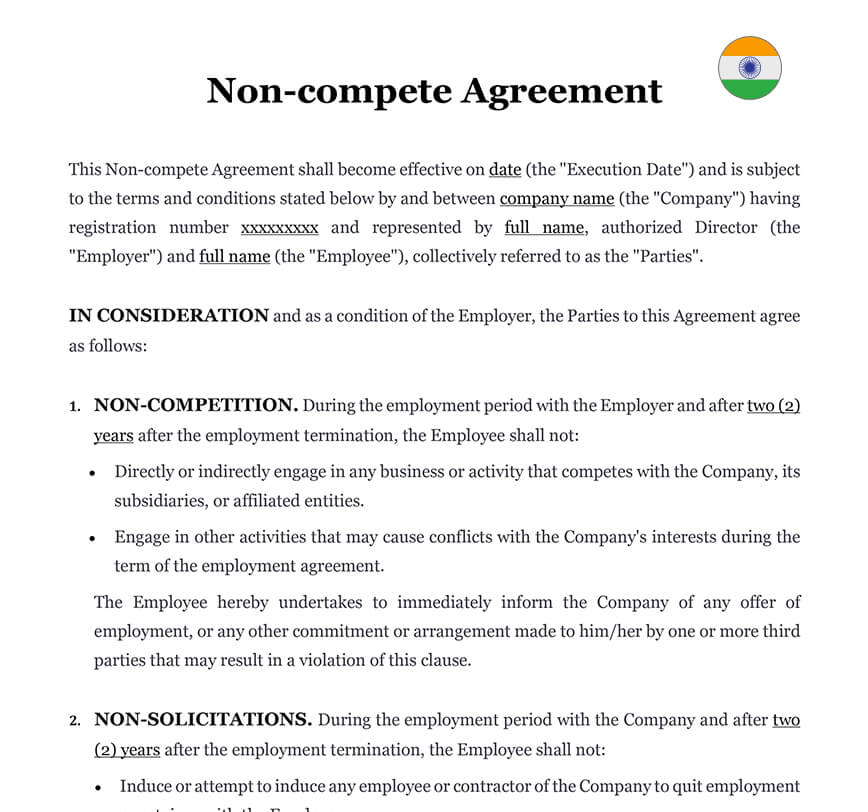Ready to use legal template
Drafted by experienced lawyers
Compliant with Indian law
Ready to use legal template
Drafted by lawyers
Compliant with Indian law
Learn more about Employee Non-compete Agreement in India
The Non-compete Agreement for employees is introduced in an Employment Contract. It prohibits an employee who wishes to leave the company from setting up or joining another company whose activity would be in competition. The main objective is to protect the interests of the company. You can also download the Employee Confidentiality Agreement to ensure that your employee will not benefit from confidential or sensitive data on his behalf or that of a third party if he leaves the company. With Themis Partner, download a non-competition clause template, in compliance with Indian legislation.
Table of contents
What is an Employee Non-compete Agreement?
The Non-compete Agreement is a contract to limit certains freedom of the employees. This agreement provides for the acceptance by the employee of the conditions set by his employer in which he undertakes not to be a direct competitor or to work for a competitor in the form and nature of the employment he will perform during his employment contract.
Under Indian law, the contract may provide for non-solicitation of information by the employee to a competitor or on its behalf during the period of the employment contract, and even beyond in certain cases. The non-competition clause was designed to avoid this type of situation and to anticipate hiring from a competitor. However, in order to be valid, the Non-competition Agreement must comply with the conditions laid down by case law, i.e. by decisions rendered by the Indian courts.
Why download this Non-compete Agreement?
In today’s highly competitive world, it is critical that every employer seek to take preventive or protective measures against the threat. Nevertheless, the major competitive risk usually comes from the employees.
With Themis Partner, get your non-compete agreement to secure your company’s interests. Our document includes the following clauses:
| Non-Competition: Your employee will not be allowed to work as an employee for a competing company during the period of the employment contract. |
| Non-Solicitation: Your employee will not be allowed to contact your employees, customers, or business partners during any period of employment. |




